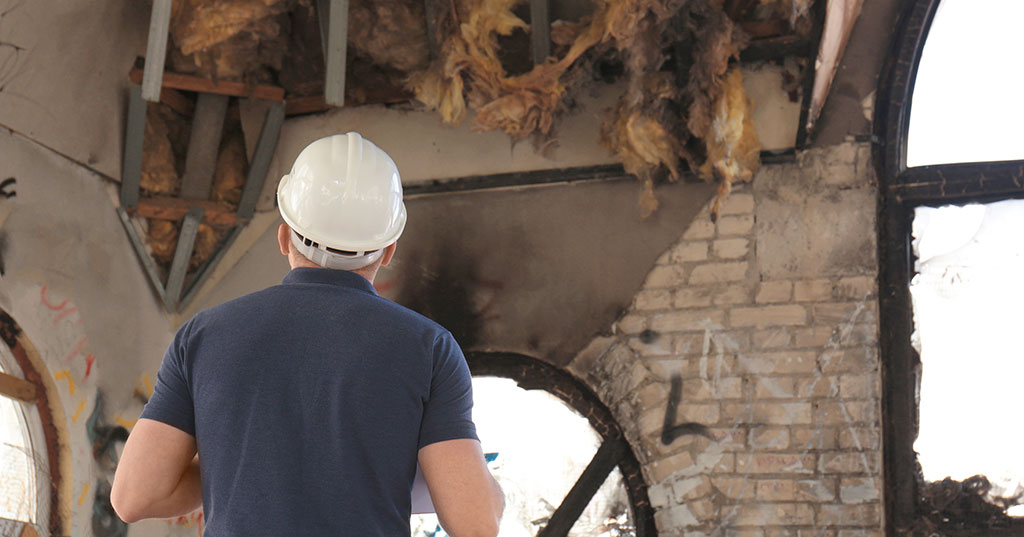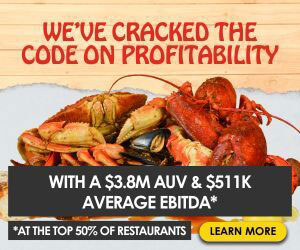Disaster Recovery: Emotional, Physical, and Financial

We cannot predict when disaster will strike, but current events prove it can happen at any time. Whether it is hurricanes, flooding, blizzards, tornadoes, droughts, or wildfires, timing can only be determined by the "odds." This can cause us to become complacent in thinking that disaster will not hit our family, business, or geography. Thus, we don't prepare at all, because feeling "the unpredictable" is too far out of our control. However, to build exponential value in your multi-unit franchisee organization, it is essential to plan for the predictable, probable, and possible contingencies.
Plan can be a bad "four letter word" for entrepreneurial-minded business owners like multi-unit franchisees. But it can (and should) be your favorite word when you or those you care about are impacted by a disaster. By having a plan in place, you have the resources and protocols in to ensure you are there for your people, and you can recover damaged real estate or inventory.
There are a variety of areas we should plan to protect the financial, physical, and emotional future of our organization. Having a disaster recovery plan in place is one of the most important tools to keep the franchise business, your employees, and yourself moving forward should disaster hit your community. Let's face it, disastrous events can turn on a dime and you can find yourself in the path of destruction.
The financial aspect of the business is the easiest area of focus when planning for those things that can change the trajectory of our business. But when considering the impact of a disaster, what is rarely considered are the emotional and physical distractions that keep owners, employees, and communities picking up and moving on. As you build your strategy for growing and developing infrastructure to support your company, it is essential to address the possible events that cover not just what Mother Nature might throw our way, but also those that relate to family and employees. For example, what if a family member, key manager, or employee unexpectedly passes away? Or what if you find out that a valued employee has a drinking, gambling, or drug dependency issue?
I was speaking with a Houston-based client a couple weeks after hurricane Harvey, and although the brick and mortar business was not substantially affected, everyone involved in the business was emotionally exhausted. Even if an employee was not personally affected, they knew a family member or friend who was. It impacted moral, customer service, and productivity.
At The Rawls Group, our business, families, employees, and clients have been in the direct path of an unprecedented number of high category hurricanes this year. Leading up to the storms, we worked through anxiety and worry, then we buckled down and hoped for the best. We closed our doors and when the storm passed and everyone was ok, it was just assumed that business would go back to normal.
But how do you go back to normal when you have exhausted so much emotional and physical capital in making sure you, your employees, your business, your community, and your family are safe? How do you recover from the ongoing distractions that linger after destruction hits? Preparation and planning are your best protection. Here are three key things to help protect your business from disaster:
- Document your disaster recovery plan. Have you considered the impact to your operations in areas such as servers and communications? Do you have a back-up plan in place to ensure you do not lose your entire customer, financial, employee, and other critical data that keeps you running?
- Define what is expected of your employees. Remember that your employees are concerned not only about their homes, families, and communities, but they are also worried about their jobs. Make sure you have clearly defined expectations of how you as the franchise owner will be there to support them in their (and your) time of need.
- Evaluate your bench strength. If an employee, manager, or key leader needs to take a leave of absence or finds themselves incapacitated, do you have qualified people to fill their role. Hourly employees are often fairly easy to replace; however, as you move up your leadership chain, consider the amount of responsibility and impact each of your people have on the organization. The more impact, the more of a focus you should have in developing bench strength to fill the role. And the great thing about creating a bench strength program is if you never find yourself in a place where you need to fill a role fast, you have also implemented a program focused on growing your people, which ultimately impacts performance and supports growth.
Each of these considerations impacts the success and sustainability of your personal future, the future of your people, and your franchise operation. Thankfully, our client in the above example had the appropriate plans in place to protect his organization, so he had the resources to support his people and those in the community. Understanding that there will be distractions outside of just the disaster itself is important, and therefore planning and preparation are your best protection.
Kendall Rawls knows and understands the challenges that impact the success of an entrepreneurial owned business. Her unique perspective comes not only from her educational background; but, more importantly, from her experience as a second-generation family member employee of The Rawls Group - Business Succession Planners. For more information, visit www.rawlsgroup.com or email [email protected]
Share this Feature
Recommended Reading:
| ADVERTISE | SPONSORED CONTENT |
FRANCHISE TOPICS
- Multi-Unit Franchising
- Get Started in Franchising
- Franchise Growth
- Franchise Operations
- Open New Units
- Franchise Leadership
- Franchise Marketing
- Technology
- Franchise Law
- Franchise Awards
- Franchise Rankings
- Franchise Trends
- Franchise Development
- Featured Franchise Stories
| ADVERTISE | SPONSORED CONTENT |

$175,000
$425,000





 The multi-unit franchise opportunities listed above are not related to or endorsed by Multi-Unit Franchisee or Franchise Update Media Group. We are not engaged in, supporting, or endorsing any specific franchise, business opportunity, company or individual. No statement in this site is to be construed as a recommendation. We encourage prospective franchise buyers to perform extensive due diligence when considering a franchise opportunity.
The multi-unit franchise opportunities listed above are not related to or endorsed by Multi-Unit Franchisee or Franchise Update Media Group. We are not engaged in, supporting, or endorsing any specific franchise, business opportunity, company or individual. No statement in this site is to be construed as a recommendation. We encourage prospective franchise buyers to perform extensive due diligence when considering a franchise opportunity.